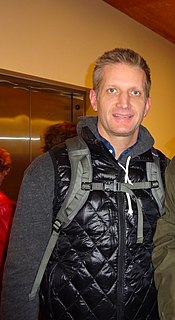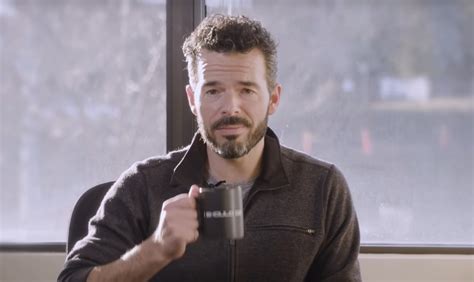A Quote by Jonathan Stroud
I like to have my characters talking in an up-to-date way, and I like their essentially modern self-awareness, which means we can have lots of irony and jokes.
Quote Topics
Related Quotes
You are awareness. Awareness is another name for you. Since you are awareness there is no need to attain or cultivate it. All that you have to do is to give up being aware of other things, that is of the not-Self. If one gives up being aware of them then pure awareness alone remains, and that is the Self.
We can create the sensation of community through the accrual of actions, and that's often the clichéd way that storytelling is talked about, as someone taking a solo, and that's great for lots of reasons. But I don't really like to feel like I'm forced to listen to it in a certain way, or that there is one master reading of performance. I think what we want from performance is multiplicity, which is lots of ways in and through it, because it's for lots of people, and it was created by lots of people, often.
With self-awareness you grow more intelligent. In awareness you learn, in self-awareness you learn about yourself. Of course, you can only learn what you are not. To know what you are, you must go beyond the mind. Awareness is the point at which the mind reaches out beyond itself into reality. In awareness you seek not what pleases, but what is true.
I want to say that what is cool about writing self-aware first person narrative is that the awareness is not necessarily the same awareness of the reader. I have a story coming out in the Paris Review and it's about a hipster. He think's he's self-aware, he's very introspective and analytical, but when you're reading it you can totally see through his self-analysis because you have a higher awareness than he does. I like playing with that too.
Often you find actors have big hearts; they're quite emotional people. Talking to actors who date other actors, and talking to people who deal with other actors, they often get emotionally caught up in lots of different things. They often wear their hearts on their sleeves. They feel things quite a lot - often to the nth degree, which I can imagine could make it quite difficult to date some of us. I think it's about having an emotional availability that you can kind of draw on. But I'm also searching for that. I'll be searching for the answer to that question for the rest of my life.
Sometimes when my fans come up to me, they think it's going to be entertaining, like I'm going to tell jokes or do bits, and then instead of that I end up talking about really mundane things with my fans, and then they're kind of like, "This is boring. I want to go talk to somebody else." I think I bore my fans to death by over-talking to them.
It's more like there are some really obvious things that are different and then lots and lots of smaller things, lots of things about who lives and who dies, civilizations that rose and fell, all the way down to individual characters. That becomes the state of where you left your galaxy. The endings have a lot more sophistication and variety in them.


































